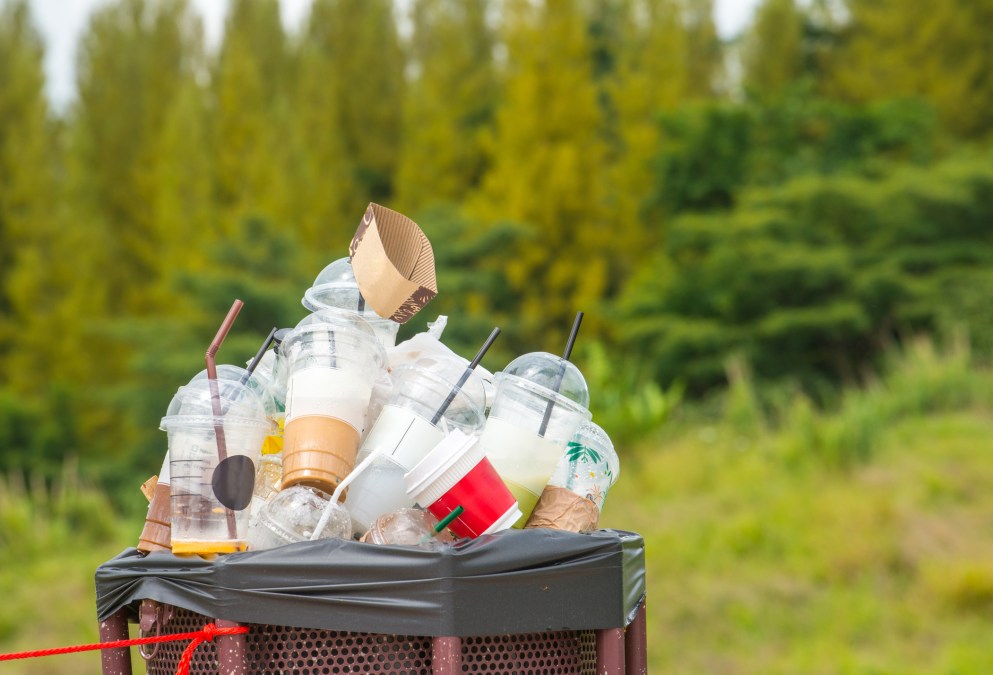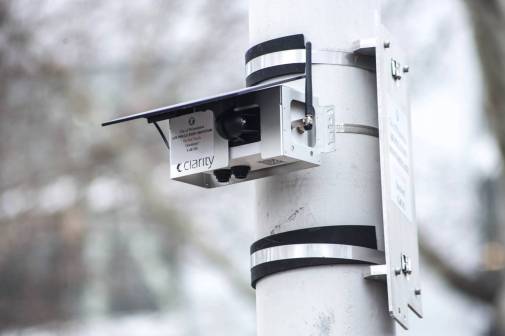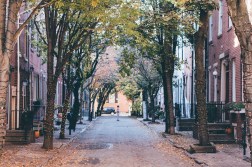Philadelphia awards 7 government innovation grants

The office of Philadelphia Mayor Jim Kenney announced seven grants totaling about $50,000 on Wednesday that will allow agencies to test new technologies and ideas inside city government.
The grants will fund pilot projects covering a broad range of government functions, from animal control to the school district. Funded through the city’s Innovation Fund, these projects are important, said Andrew Buss, Philadelphia’s deputy CIO for innovation management, because they allow agencies to try new things that could catch on and become larger programs that make the city a safer, smarter or cleaner place to live.
“The fund is really intended to create opportunities for city employees to propose pilot projects for thing they’ve been thinking about a lot and don’t necessarily have general operating dollars for but think have the potential to really make a difference, either in their department from some process perspective or in the community from some service perspective,” Buss said.
Among the grant recipients is the Office of Transportation of Infrastructure Systems, which will use its $7,500 to develop a prototype bicycle corral that can be used to park bikes, prevent illegal car parking in front of fire hydrants and still allow access to the hydrant in case of a fire.
The city’s animal control office received $6,600 for a new computer-aided dispatch system that is hoped to speed data entry and incident response.
The “Zero Waste and Litter Cabinet,” a consortium inside the mayor’s office that seeks to eliminate much of the city’s waste and litter by 2035, received $7,500 to lead an app-based pilot program in 75 public schools. Using an app called Litterati , students will be encouraged to identify, map and collect the litter they find.
Through the pilot, the bounds of each school will be geofenced so participating students can contribute data to school-specific databases that can be analyzed and better understood, providing both new educational opportunities or the possibility to change school policy.
Nic Esposito, the city’s zero waste and litter director, explained that the goal is to get students thinking critically about waste so that when they see a piece of litter they ask “How did this get here?”
“They collect all this data through a club or even a science class and then there’s a whole curriculum that Litterati has that connects students back to math for evaluation, the philosophy of litter — how litter happens and how it works — and then even civics lessons, making the case for how you can improve these litter conditions,” Esposito said.
Through his work at the city, Esposito said he has seen that litter is often the product of learned behaviors, but also environmental shortcomings — if there aren’t enough trash cans, even environmentally-minded people could be nudged toward littering. The result is an unsustainable future for life on Earth; according to the United Nations, there are 51 trillion microplastic particles in the oceans — 500 times more than there are stars in our galaxy.
“We hear it all the time — ‘What are you doing for the school district? Kids need to get this message.’ And that was a big part of this program,” Esposito said.
If any of these new pilot projects prove successful, they could grow and become regularly-funded programs. Buss’s chosen poster child for success in innovation was a program piloted through the Innovation Fund called ” Digital Skills, Bicycle Thrills ” a course for the public that combines bicycle safety training with computer science education. It was so well received that the city’s Office of Adult Education now operates it as a regular program and its seventh cohort of students completed the course this past July.
“Once you actually implement them and evaluate them and look back on them,” Buss said, “some of them will probably come out of the Innovation Fund and take on a life of their own.”
The projects, as described by the city:
Zero Waste and Litter Cabinet / Managing Director’s Office – Clean Futures / $7,500 In partnership with Keep Philadelphia Beautiful and the School District, the Cabinet will launch a pilot of the Litterati application in 75 public schools, allowing students of all ages to learn about and directly impact litter, consumption and the environment in their neighborhoods.
Office of Transportation of Infrastructure Systems (oTIS) – Prototype Bike Corrals / $7,500 Working with local makers, oTIS will develop a prototype bike corral to prevent illegal car parking in front of a hydrant and creatively meet an increased demand for bike parking in Philadelphia. The corrals will preserve access for hose hook up and equipment mobilization during fires, and include a tall visual guide to alter fire fighters to hydrant locations.
Animal Care & Control (ACCT) – Mobile Dispatch and Information System / $6,600 ACCT is piloting a tech-based, computer aided dispatching program that provides more efficient animal control responses to residents. This requires installation of laptops, stands and hotspots in Animal Control Officer vehicles. Officers will be able to respond to calls for service and enter animal information into software in real time, saving time and money for the department, and improved services to the public.
Philadelphia Fire Department – Upgrading PFD-TV / $7,500 The Fire Department relies heavily on video and online material to train and communicate with its diverse, and non-traditional workforce. By upgrading their video equipment, software and programming, the department will be able to offer more, higher quality, and engaging training and educational materials to both firefighters and emergency responders, and the public.
Public Health – Sharps Disposal / $7,500 The Philadelphia Department of Public Health is proposing a pilot project to identify and address safe sharps (opioid needle) disposal needs across City departments and among the community, including non-profits and businesses. PDPH plans to assess community concerns, offer portable sharps disposal containers and ensure safe removal. These containers would supplement the larger disposal systems that are currently planned for distribution.
Department of Human Services / Mayor’s Office of Grants – Penn Museum Virtual Learning Pilot / $7,478 Philadelphia’s Juvenile Justice Services Center will team with the Penn Museum for year-long educational opportunities for youth currently being held in the City’s Juvenile Center School (a public school). Programs include Unpacking the Past, onsite programs offering hands-on lessons that boost critical thinking. Virtual Programs will offer connections to global educators and professionals through real-time video connections.
Air Management Services – Asbestos Webinar / $1,080 AMS is proposing to develop a series of webinar trainings for approximately 200 Asbestos Project Inspectors. Currently, the trainings are only offered in person, and moving to a more modern, tech-based platform would allow for innovations in the delivery and the material of the course itself, making it more effective and responsive to the needs of both facilitators and participants.






